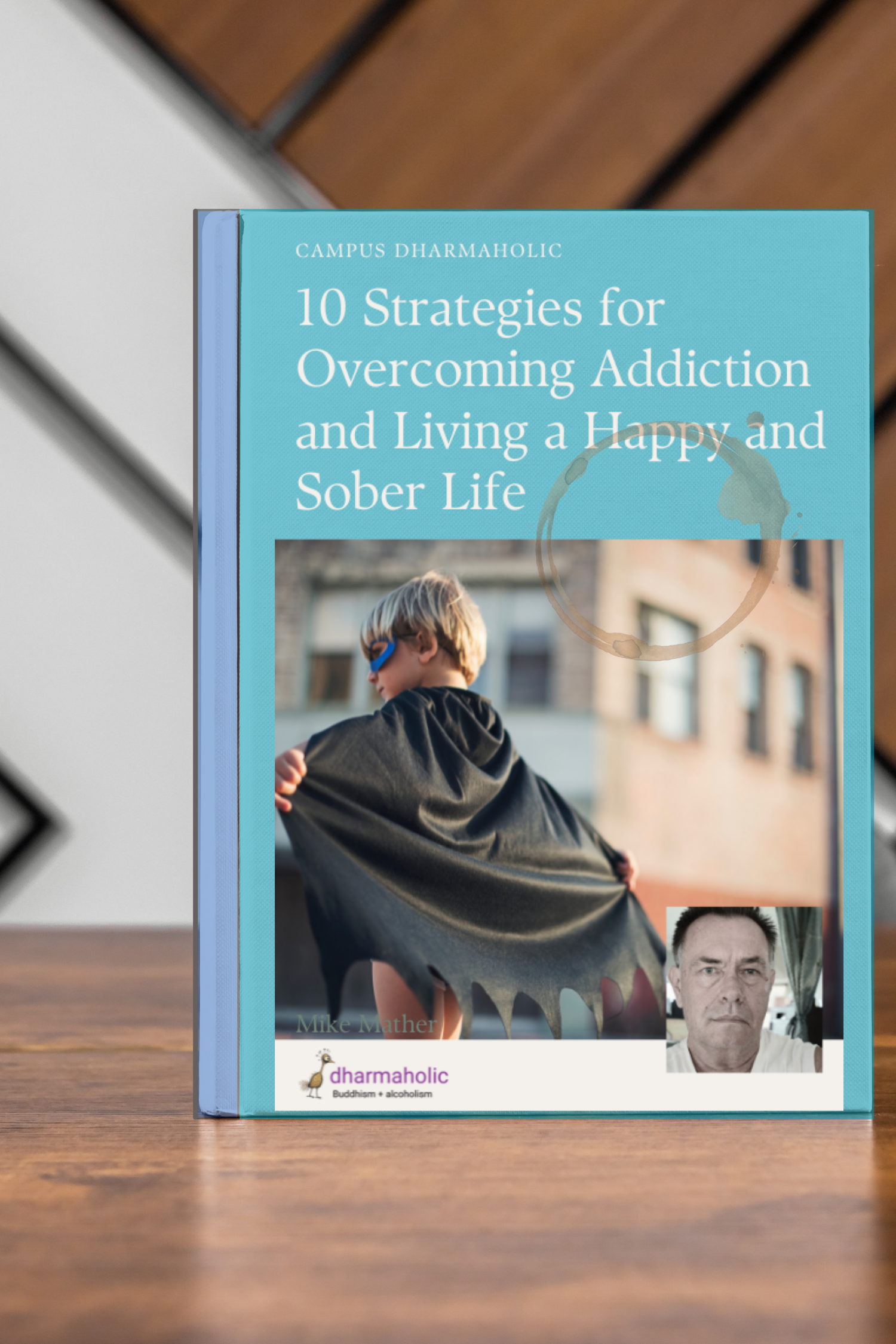More Salt Water, Anyone?
The relentless pursuit of our selfish desires is like drinking salt water to quench your thirst. The more we indulge our desires, the greater our thirst. The teachings on karma suggest that there are causes and effects, and that this is a balanced and equitable closed system. As I sow, shall I reap.
The upshot of the lesson of self-cherishing ignorance is that, our desire prompts us to act in a way that causes harm to our self and others, and the consequences are bound to be negative.
We then desire freedom from the results and blahdy, blahdy blah. A shit-storm of shame and remorse and desire and pain.
If only we had thought of someone else’s happiness and not our own.
How do we shift our focus from self to others?
Here’s some thought.
Generally, we tend to categorise the world into good, bad, or neutral. We see this only from one perspective—our own.
Self-cherishing is the root cause of our problems, including alcoholism. It is also the basis for experiencing the effects. In a way, alcoholism is a manifestation of our problems, and it only worsens our situation.
Think, “Does the world look any brighter with a hangover?”
Shantideva's quote on self-cherishing emphasises that all happiness in the world comes from wishing others to be happy, while all suffering arises from wishing only ourselves to be happy.
All the happiness there is in this world
Arises from wishing others to be happy,
And all the suffering there is in this world
Arises from wishing ourself to be happy.
Shantideva
Geshe Kelsang Gyatso gives an example of how self-cherishing can lead to depression and mental pain when our wishes are not fulfilled. We may even contemplate suicide, as we believe our own wishes to be of utmost importance.
If we substitute self-cherishing with alcohol, we can see how alcoholism can cause major problems in our lives. It can lead to,
- discord
- quarrels, and fights, as we hold our opinions and interests strongly and are unwilling to see another's point of view
- we may even resort to verbal or physical harm
- alcohol also makes us feel depressed when our wishes are not fulfilled, or when our lives don't go as planned.
If we examine all the times we have been miserable, we will find that excessive alcohol use was often involved. Eventually, acute addiction leads only to jail, institutions, or premature death.
See also 'Alcoholism and Finding Your Higher Power'

Photo by Ruben Ramirez on Unsplash
I Am Most Important
We may not be as concerned when other people lose their jobs or friends, but losing these things ourselves can cause us great sorrow due to our attachment to them.
‘The relentless pursuit of selfish desires is like drinking saltwater to quench our thirst. The more we indulge in them, the greater our thirst becomes’.
Therefore, addiction, selfishness, and being human are all the same—it’s just a matter of degrees.
Buddha teaches us that when we identify our ‘I’, the independently existent self, and begin to satisfy that ‘I’, we are prone to cause problems.
Our desire to please ourselves is, by its nature, selfishness.
'Self-will run riot' is a term that 12-Steppers will remember: that describes the addict in their full-blown state.
… Or does it?
Being Human
The eloquent Holly Whittaker wrote,
“…we’re all addicts. It’s just we think the real, fucked up people are over there shooting tranq and fentanyl and dying on the street, not over here snorting skincare routines or TikTok to fill an unfillable void. This is a mistake”. Recovering
Human behaviour in the 21st Century looks very much like ‘Self Cherishing Ignorance’ that Buddha Shakyamuni spoke about 2,500 years ago.
If you suffer with an addiction of any shape or colour, then you would do worse than to read ‘Eight Steps to Happiness’ and put the simple lessons into your mental training. It is not easy to attempt this complete turn-around from selfish to selfless.
It may take you longer than you’ve got in this lifetime.
What have we learned from the most successful 20th Century remedy for alcoholism (AA), and the ancient text of Buddhism?

Photo by Evgenii Pliusnin on Unsplash
The Great Transformation
It is the need to transform our mind from thinking about me, to thinking about you. The only question is, “When?”
When will I learn?
It must start now, and it can only start with me.
Believing that it has taken many lifetimes to arrive here is as mind-blowing as it is comforting. I can take my time, breathe, and go slowly.
Baby Steps
As Laotzu said, the journey of a thousand miles begins with a single step. Try these baby steps and see if they’re of benefit.
- Realise that it’s YOU—you are the universe. You are the cause. You can change.
- Addicts are not special, different—you are a human being having a human experience. Change is available.
- Your best desire is the desire to change. Jesus, Buddha, Mohammed, and David say very similar things. Be nice to others is a great start.
I have read Eight Steps to Happiness so many times since my first copy in 2008, because every day I learn something new. There is more to learn every day about the great teachings of Buddha, and there are so many more things I learn about me each day.
Read, discuss, contemplate and meditate. This is the advice I give you as you embark on this journey of a thousand miles. Go well.


